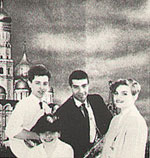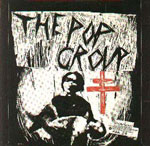
Manicured Noise
It is this mod-like magpie mentality that belies the myth of punk being something of a cultural year zero. Almost 30-years on Walsh argues that “many of the punk movement’s main protagonists were at the end of their teens and already had long and eclectic careers as music fans stretching behind them into the early ‘70s actually a hugely fertile period across all genres despite or maybe because of the depressed economy of the time.”
He goes on to cite the dub championed by Don Letts, fondly remembered Krautrock, the mavericks like Henry Cow, Beefheart, Peter Hammill, free jazz, and the funk and “early disco tracks being played in the gay clubs such as Louise’s or Sombrero, the preferred after hours haunts for London’s punk elite, while Bowie’s Low captured the alienated and protracted speed comedown that was autumn ‘77”.
Walsh makes the case for these sounds returning to provide “fertile undercurrents during those months after the initial punk frenzy had dissipated.” In his own writing of the time Walsh actively promotes the adventurers and gamblers, like Pere Ubu and This Heat, the ones getting away from punk conformity.
In two specific features for music monthly Zigzag Walsh wrote about the possibilities of pop, and triggered many arcane dreams. These features were on Subway Sect and The Pop Group, and they remain hallowed texts. It is the Subway Sect interview where the policy of opposing tired old rock rigidity is put forward, and the group eagerly discuss the potential for introducing new language into the structure of pop songs. In The Pop Group article a few months later Walsh is haunted by an instant connection with individuals from a completely different city, just as desperate to challenge old conceptions.

Writing out his hopes and fears in this way, Walsh’s restless impulse must have got the better of him. He had been part of the punk coterie collective, the Flowers of Romance, with Sid Vicious and Viv Albertine, but there was a hunger to participate in something more substantial and strange. In the summer of ’78 during a journalistic foray he made contact with Manchester new music chancers Manicured Noise who offered an opportunity to indulge his dreams of being part of an enigmatic gang along the lines of The Pop Group and This Heat.
The defiantly anti-rock’n’roll Manicured Noise then were fronted by Gavin (who would be better known as journalist Frank Owen), with Jody on bass, Stephanie on drums, and it was this line up that Walsh joined as guitarist. If ideas and ambition outstripped ability then so what? That was part of the appeal. And the influences weighed heavy. Walsh recalls Gavin as “an archly clever young man who could often be sighted with purloined library books of Structuralist cinema and French Nouveau Roman authors like Alain Robbe-Grillet and Nathalie Sarraute.”
He adds: “Such intellectual heavyweights jostled with early Chic and the seminal August Darnell group Machine. John Barry, R Dean Taylor and Musique Koncrete were sandwiched in alongside Philip Glass and Steve Reich; free jazz was grafted over Lalo Schiffrin and ‘70s cop show soundtracks. Some much-needed soul was added over the top of all this eclectic stiffness by the excellent Pete Bannister on saxophone who was basically a Coltrane and Archie Shepp kind of guy. I punctuated all this with a kind of Fred Frith-meets-the-Ventures twangy guitar on a beautiful old 1962 Fender Mustang.” Such attention to detail is important.

Delta 5
Of these it is the second single, 'Faith', that is most warmly remembered. The Talking Heads and Northern Soul reference points are vivid, but that’s a part of the charm. A session for the late afternoon Kid Jensen Radio One show followed, with four great lost songs. Walsh recalls that Mark Stewart of The Pop Group was very much in attendance, providing twisted backing vocals, tambourine and atmospherics. Then just as momentum was gathering, with dates planned in New York, and a small tour with Magazine in Europe, the group dissolved.
Walsh would plough a lone furrow, reflecting the times by flirting with full funk dramatics where Scott Walker met the Golden Years, but the Associates and ABC stole what thunder there may have been. Walsh recalls becoming involved with Innervision (home of Wham and Animal Nightlife) and feeling increasingly uncomfortable about what he was doing. “Having started out interesting and arty I was now surrounded by white socked soul boys. I’d spent my life running away from Suburbia only to be engulfed by it. Thatcher’s Britain was in full acquisitive swing, and Wham represented the apotheosis of all things suburban.”
In the late ‘80s fellow refugees from fraught farragoes with the music business Shack released a relatively straight cover of 'Faith'. It perfectly captured the soulful flow of the original, and hinted at the immense potential. Not that many noticed, and we were all too much in love with ideas to see anything through.
© 2006 John Carney